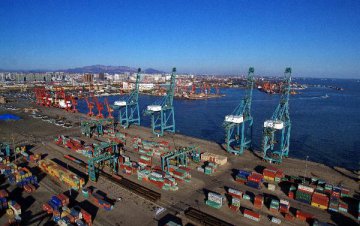The rise was lower than that of the same period last year, when the credit rose by 6.16 percent, local daily newspaper Vietnam News cited the central bank's figures as reporting on Wednesday.
According to local experts, the moderate growth is a good sign for the economy, proving that Vietnamese firms are no longer too dependent on bank loans as they could raise capital from securities and bond markets.
The domestic market has also witnessed new capital supply channels, such as fintech and peer-to-peer companies.
In recent months, the credit structure of Vietnam's banking system has shifted its focus towards manufacturing, especially to such prioritized sectors as agriculture and small and medium-sized enterprises, while loans were tightened to sectors with high potential risks including property and securities.
Total loans of the system grew 14 percent in 2018, falling short of the target of 17 percent. The central bank has set the 2019 credit growth target at about 14 percent.




















Latest comments